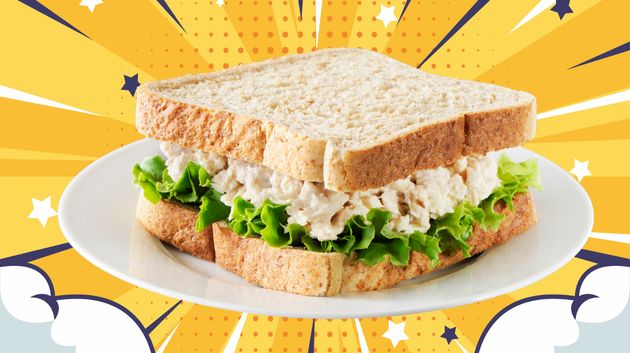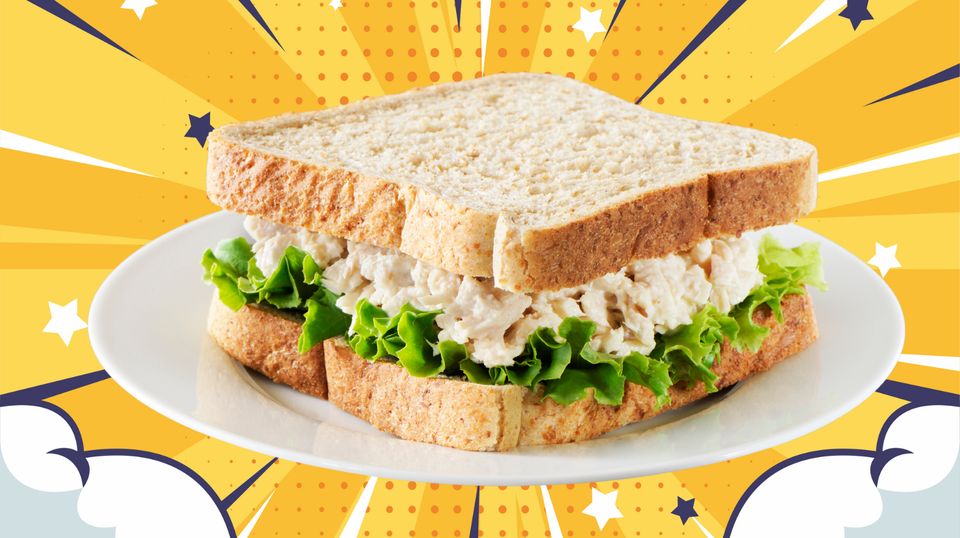Sometimes, eating the same thing every day, especially if it’s nutritious, seems like a good idea. Having something like egg whites, yogurt and toast for breakfast, and chicken, broccoli and rice for dinner helps with meal preparation and simplifies one’s life.
It can also aid in maintaining energy levels. For example, an athlete friend of mine eats the same thing every day at the exact same time (3:30 p.m.) to “secure his energy levels.” Two hours before his workout, he eats chicken, rice and rice cakes. Eating the same thing guarantees his energy, and eating two hours before working out allows him to digest the food. He also typically eats the same food for breakfast every day.
Advertisement
But getting stuck in a steadfast routine can have some drawbacks. Is this type of eating regimen healthy enough?
There’s a fine line to be aware of.
While it can be common to eat the same foods every day, there can be a point when it turns into something of more concern. Katherine Metzelaar, a Seattle-based dietitian and certified intuitive eating counsellor, explained if someone’s eating the same foods every day, they might have an eating disorder called avoidant/restrictive food intake disorder, or ARFID.
“My first thought is, ‘Why is someone doing that?’” Austin-based dietitian, nutrition therapist, and body image healer Emily Van Eck told HuffPost. “If someone is doing that, I would wonder why, because they could be overly fixating on something.”
Even if someone is neurodivergent and needs to eat the same foods all the time, Metzelaar encourages variety. Plus, consuming the same foods every day could lead to nutrient deficiencies and poor gut health. Metzelaar said that could include bloating and constipation.
Advertisement
“Humans don’t benefit from having the same exact thing every single day,” she said. “Human bodies really benefit from having a variety of different kinds of foods throughout the day, throughout the week, over time.”
Variety is generally best.
Van Eck also said choosing an assortment of foods works best. “I think a variety is best, as in trying to eat different types of grains, different types of vegetables, and different types of protein over the course of a month,” Van Eck said. “I don’t think we need to micromanage the variety of our diet but generally change it up. That also helps with enjoyment and satisfaction. You will get bored eating the same thing every day. It’s beneficial to practice variety because that way when you get sick of something, you have other things you know you like.”
She suggests eating vegetables because they contain valuable fibre, vitamins, phytonutrients and antioxidants, which lower cholesterol and blood pressure and help in disease prevention.
“If your everyday meal includes a lot of variety, just in that one day you’re going to be getting a lot more nutrients than if you’re just eating egg and toast for breakfast, a turkey sandwich, and beef and rice for dinner,” Van Eck said. “You’re not going to be getting lots of vitamins and minerals, so it really depends on what you’re eating.”

Westend61 via Getty Images
Advertisement
However, according to Van Eck, it’s OK to meal prep a batch of chicken and rice and broccoli for a week as long as you switch it up the following week or so. “That’s a good way to streamline,” she said.
Long term, not eating a well-balanced diet can affect a person’s mental wellness and social life.
Limiting one’s food options “can increase anxiety around food,” Metzelaar said. “Food is such a pleasurable, joyful part of life, so it can impact people’s mental health as well. We gather with food. We celebrate with food.”
Another concern about eating the same thing is that it can result in intense cravings, or a fixation on the foods you aren’t eating. Metzelaar cited fitness competitors who go on strict diets, saying, “They start to notice cravings for other foods and that can show up in all kinds of ways like in sweets or certain dishes, and a lot of food taking up a lot of headspace for them, dreaming about food, waking up in the middle of the night craving food.”
The bottom line is, eating a mixture of foods and obtaining enough nutrients every day is ideal for a healthy lifestyle.
“Not overthinking our food choices is important, and over-stressing about food doesn’t necessarily do any good,” Van Eck said. “We don’t need to be perfect eaters. If you want to improve your diet, if you’re looking at the things you’re eating and you’re like, ‘Man, I’m not really getting any vegetables,’ or ‘I am not getting enough protein,’ or ‘My blood sugar is kind of out of whack’ or whatever, you can take small steps to improve that. But overhauling everything in your diet is never the answer.”
Advertisement




